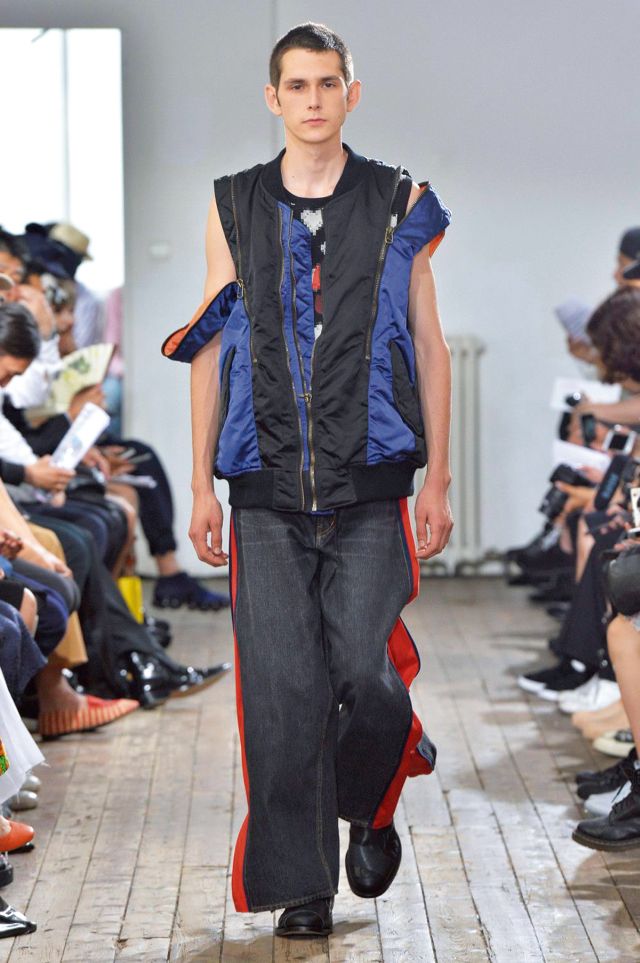Aiming to expand business with stable management resources
Examples of Tokyo’s young to mid-career designers entering into capital alliances are on the rise. Their partners in this include trading companies and retail businesses. Here, the demands of designers seeking stable management resources in the wake of expanding their brand businesses coincide with the expectations of their business partners, which would like to amass knowhow on brand and product development capabilities.
Designer brands that have recently entered into capital alliances include Attachment, Factotum, and Facetasm. All of these brands have achieved net sales on the order of 500 million – 1 billion yen in the ten plus years since they were founded.
Concentrating on creation
Facetasm is a consolidated subsidiary of the NCXX Group. It has formed a capital and business alliance with Versatile, which offers businesses services such as consulting and human resource recruiting, thus making it a consolidated subsidiary of the NCXX Group.
The NCXX Group has a number of subsidiaries in fields such as manufacturing telecommunications devices and equipment and system development, and is promoting the adoption of the Internet of Things (IoT) and other technologies in various industrial sectors, including fashion. It is also entering into capital and business alliances with Titicaca, which sells ethnic clothing and accessories, and the casual specialty store CSMEN.
Attachment transferred all of its stock to Yagi & Co., Ltd., a trading firm specializing in textiles, to become one of its affiliates. Yagi listed “Enhancing our ability to demonstrate our full strength” as one of its priority policies in its medium-term management plan ending in the fiscal year that ends March 2020, and is expanding its business areas. It has also been proactive about moves such as acquiring Leaps & Bounds (currently Tatras Japan), which sells Tatras and other brands, as a subsidiary, along with Yamaya-Orimono Co., Ltd., whose main product is yarn.
TOKYO BASE Co., Ltd., which runs the select shop STUDIOUS, has formed a capital alliance with Loschild Co., Ltd., which runs Factotum.
These sorts of capital alliances are the result of demand for stable management resources when designer brands expand their businesses. Now that it is a little over ten years since these companies were founded, perhaps as they accelerate the pace at which they set up shops and expand their wholesalers they are now ready to entrust management and financial affairs to professionals so they can concentrate on creation.
After announcing in Paris that it would be expanding its sales channels, Facetasm has expanded to more than 100 wholesalers around the world. Since it now needs knowhow that was previously not necessary, such as on financial management for everything from production to delivery, it has embarked upon partnerships to gain such knowhow.
In the ten years since its founding, Factotum has launched partnerships with the aim of expanding its business via direct sales. Wholesale has accounted for more than 80% of its business so far, but the company plans to boost direct sales until it accounts for more than 50% of its business, while still maintaining the scale of its wholesale operations. TOKYO BASE, which the brand partnered with, is providing support in areas such as assisting with opening stores, sales, e-commerce management, launching products for its overseas collection, and more. Chief among this, it senses enormous possibility when it comes to opening stores. Stores will be directly managed by Factotum, with management support provided by TOKYO BASE.
Synergy for business partners as well
There are, of course, advantages for the business partners as well.
For example, Yagi is hoping to harness the strength of the Attachment brand, and its own textile development capabilities and apparel sales channels to serve as a foothold for strengthening its foundation in secondary textile products and brand business promotion. Conversely, Attachment is aiming to create synergy by sharing Yagi’s production experience, as well as its management resources, production, and sales routes in Japan and overseas.
For designers, continuing to grow by striking a solid balance between creation and business is a difficult task. There are numerous cases where the businesses of Tokyo’s independent designers start off on a wholesale basis, before proceeding to running directly managed stores or opening multiple stores once their net sales hit 500 million yen.
In doing so, one option is to entrust management and the running of stores to teams that specialize in this, allowing designers to concentrate on creation. When seen from a global perspective as well, the only names that come to mind when it comes to geniuses able to handle both creation and management are Rei Kawakubo and, for a time, Christopher Bailey of Burberry.
The modern design business requires a creative director-type mind set of designing everything, even the sales side. But perhaps one potential configuration is to entrust the handling of financial affairs and management to people who are pros at this. (Photo = catwalking.com)

